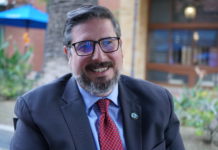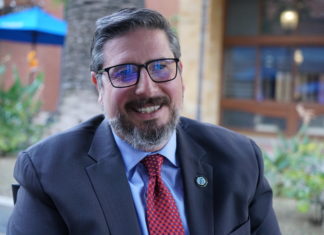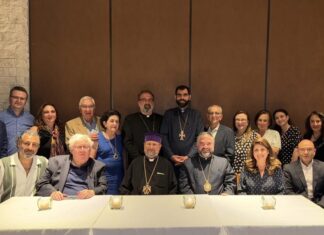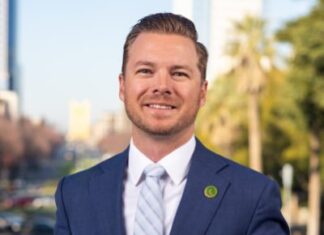LOS ANGELES — The epicenter of the Armenian-American community in the United States adapted across all sectors when California’s “Safer at Home” mandate went into effect in March, ordering citizens to stay at home and non-essential businesses to close as a way to counter the COVID-19 pandemic and flatten the curve of cases. Although the number of infections, approximately 20,000 in Los Angeles county, did not ravage the city as much as anticipated, government leaders are erring on the side of caution and the organizations, institutions, restaurants and entertainment that are vital elements to the lives of Armenians throughout the metropolis, are still on lockdown as citizens become accustomed to a new way of life.
Following Governor Gavin Newsom’s statewide shutdown that was echoed by Los Angeles Mayor Eric Garcetti, the City of Glendale declared a state of emergency on March 19 and ordered all nonessential businesses to close and declared residents to stay at home, according to former mayor and councilmember Ara Najarian.
“Glendale took specific steps on this matter and closed all city events, playgrounds, pools and hiking trails,” he said. “We increased social services including our senior meal program and we delivered meals to the homeless and obtained temporary lodgings for them in motel rooms.”
Glendale acted fast and made its citizens and sanitation its priority by installing portable bathrooms and handwashing stations throughout the city, waiving fares on all municipal buses, developing a COVID-19 telephone hotline where residents could report abuses of city orders or request special assistance, ordering all residents to wear a face covering outside the home and implementing an eviction moratorium and a freeze on all rent increases. In addition, the City Council focused on educating residents by sending out mailers informing them of the COVID-19 orders, enacting automated calls to all households and preparing informational videos about the coronavirus in Armenian, Spanish and English.
“The residents of Glendale have adapted fairly well although it has taken weeks for many to wear face coverings in stores and now outside of their homes,” said Najarian.
One source of frustration have been reports that residents continue to hold celebrations and get-togethers with family and friends, congregate outside, and open up stores for business, which violate the emergency orders set forth by the city.










